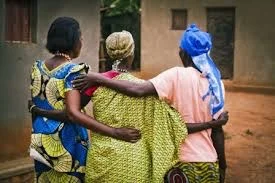Readings for the day: Isaiah 5-58
The great Reformer, Martin Luther, taught that we learn to hear God’s voice in three primary ways. Oratio - Prayer. Meditatio - Meditation. En Tentatio - Within the “tensions” of real life. It is this last one I find impacting me this morning.
I am in Rwanda. A nation still recovering from a horrific genocide that resulted in the death of over 1.1 million people. Spurred on by a racist national government with a history of systematic abuse and oppression, many ordinary, everyday people turned into rabid killers. They murdered and raped friends. Family members. Neighbors. Co-workers. Things turned so evil that some pastors turned on their congregations. Turning church buildings into charnel houses. Luring their parishioners into traps with the promise of safety. One pastor even bulldozed his own church down on the heads of those he served. These events provide a dark backdrop to these words from Isaiah this morning...
“Why have we fasted, and you see it not? Why have we humbled ourselves, and you take no knowledge of it?' Behold, in the day of your fast you seek your own pleasure, and oppress all your workers. Behold, you fast only to quarrel and to fight and to hit with a wicked fist. Fasting like yours this day will not make your voice to be heard on high. Is such the fast that I choose, a day for a person to humble himself? Is it to bow down his head like a reed, and to spread sackcloth and ashes under him? Will you call this a fast, and a day acceptable to the Lord? "Is not this the fast that I choose: to loose the bonds of wickedness, to undo the straps of the yoke, to let the oppressed go free, and to break every yoke? Is it not to share your bread with the hungry and bring the homeless poor into your house; when you see the naked, to cover him, and not to hide yourself from your own flesh? Then shall your light break forth like the dawn, and your healing shall spring up speedily; your righteousness shall go before you; the glory of the Lord shall be your rear guard.” (Isaiah 58:3-8)
Rwanda has been known for many years as a Christian nation. Some 90% of the population claimed to know Christ prior to the genocide. So how does one adequately explain how these same people ended carrying out one of the most gruesome pogroms in human history? Bishop John Rucyahana, a key figure in the forgiveness and reconciliation movement in the wake of the genocide, suggests it is because their Christianity only went skin deep. It hadn’t penetrated to the heart. Though they worshipped. Though they fasted and prayed. Though they had the appearance of godliness, they did not love God with their hearts. Isaiah was facing a similar situation in his own time. The people of God worshipped, fasted, sang, made sacrifices. They appeared to follow God’s commands but all the while they were seeking their own pleasure. Their own power. The results were obvious to anyone who could see. Oppression of the weak. Violence. Dissention. Pride.
In the face of evil, God calls His people back to Himself. He calls them to lay aside their own comfort and protection. Their own safety and security. Their own wants and desires to serve a higher calling. A greater purpose. To humble themselves before the Lord and lay their lives and their future in His hands. Prior to returning to Rwanda, Bishop John was leading a flourishing ministry in Uganda. He was doing God’s work and many people were being saved. But God wanted Bishop John to leave his comfortable life and return to his own country. Bishop John reports hearing God telling him, “If you do not go there and present the healing gospel, then the fate of Rwanda will be in the hands of those who carry guns. If God is the remedy and the solution, whom shall He use, if you don’t allow Him to use you?” This powerful message from the Holy Spirit convicted Bishop John and he laid everything aside to return home. Isaiah calls his people to a similar return. To return back to God in faithfulness and service. To “loose the bonds of wickedness, to undo the straps of the yoke, to let the oppressed go free, and to break every yoke...to share your bread with the hungry and bring the homeless poor into your house...” God promises that when His people commit their ways to Him, their light shall breakforth like the dawn and the glory of the Lord will be their rearguard.
So...here’s the challenge for us...do we believe these words are as much for us as they were for the people of God in Isaiah’s time? For the Hutus and Tutsis of Rwanda in the 1990’s? Do we believe God has called us to place our lives in His service? To give all that we have and all that we are to a higher calling? A greater purpose? To set aside our own agendas and let God guide and direct our steps? This is what it means to follow Christ. There are no other options. There is no other way. Only full and undivided devotion will do. How will you live your life for Christ today?
